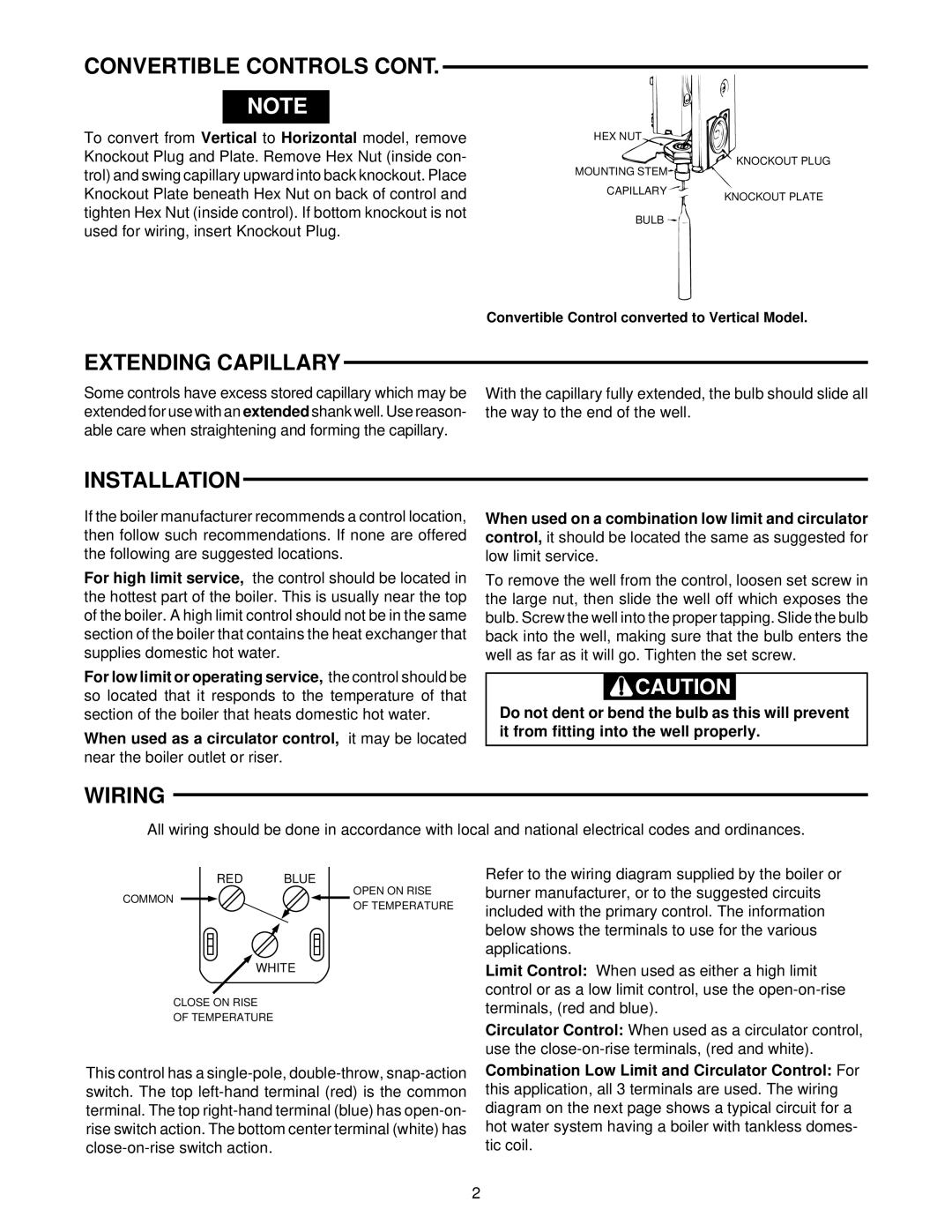1131 specifications
The White Rodgers 1131 is a versatile and reliable thermostat designed for residential heating and cooling systems. Renowned for its user-friendly interface and advanced features, it caters to homeowners looking for comfort and energy efficiency. This model stands out due to its robust construction and ease of use, making it an excellent choice for both modern and traditional HVAC systems.One of the primary features of the White Rodgers 1131 is its digital display, which provides clear visibility of the current room temperature and set points. This display simplifies temperature adjustments and allows users to monitor their system easily. The thermostat is equipped with a simple programming interface that enables users to set up heating and cooling schedules according to their lifestyle, effectively optimizing energy consumption.
The White Rodgers 1131 employs advanced temperature control technologies, delivering precise temperature regulation that enhances overall comfort. This model supports dual fuel systems, making it compatible with a variety of heating sources, including heat pumps, gas, and oil furnaces. This flexibility ensures it can effectively manage heating and cooling demands in diverse climates, maintaining a comfortable indoor environment year-round.
Another notable characteristic is its energy-saving capabilities. The thermostat provides features that facilitate energy-efficient operation, such as adjustable setback settings. Homeowners can program lower temperatures during unoccupied hours and return to comfortable levels before their arrival, significantly reducing energy bills without sacrificing comfort.
Moreover, the White Rodgers 1131 integrates advanced features like an intuitive keypad and consistent performance. The replaceable battery ensures continued operation even during power outages, providing peace of mind during extreme weather conditions. This model is designed for easy installation, compatible with most standard electrical wiring.
In summary, the White Rodgers 1131 thermostat is an excellent choice for homeowners seeking a reliable and efficient climate control solution. Its combination of user-friendly programming, dual fuel compatibility, and energy-saving features positions it as a top pick in the thermostat market, ensuring optimal comfort while reducing energy costs. With its robust design and adaptability, the White Rodgers 1131 is engineered to meet diverse residential heating and cooling needs for years to come.

